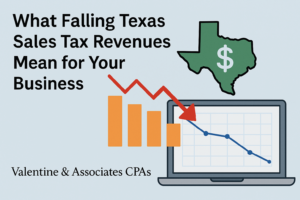2025 Business Meals & Entertainment Deductions: Stay Compliant and Save
Share On Social
Guide to Meals & Entertainment Deductions for 2025

Understanding the complexities of tax deductions for meals and entertainment is essential for businesses aiming to optimize their tax liabilities. Understanding what expenses are deductible, and to what extent, can significantly impact your financial planning. This guide provides an overview of the current rules for 2025 and highlights any changes from previous years.
Overview of Meals and Entertainment Deductions
The Tax Cuts and Jobs Act (TCJA) of 2017 brought significant changes to the deductibility of meals and entertainment expenses:
- Entertainment Expenses: Expenses related to entertainment, amusement, or recreation activities are generally nondeductible. This includes costs associated with entertaining clients at sporting events, theaters, or similar venues. (irs.gov)
- Business Meals: Businesses can typically deduct 50% of the cost of business-related meals. To qualify:
- The taxpayer or an employee must be present.
- The food and beverages should not be lavish or extravagant.
- The meal must be directly related to the active conduct of business.
Temporary 100% Deduction for Restaurant Meals (2021-2022)
In response to the COVID-19 pandemic, the Consolidated Appropriations Act of 2020 allowed a temporary 100% deduction for business meals provided by restaurants for the years 2021 and 2022. This measure aimed to support the struggling restaurant industry during the pandemic. However, this provision expired at the end of 2022, and as of 2025, the deduction for restaurant meals has reverted to 50%. (irs.gov)
Exceptions to the 50% Limit
Certain meal expenses are 100% deductible, including:
- Recreational or Social Activities for Employees: Expenses for events like holiday parties or annual picnics that are primarily for the benefit of employees (excluding highly compensated employees) are fully deductible. (irs.gov)
- Meals Provided to the General Public for Promotional Purposes: If your business provides meals or snacks to the general public as part of a promotional event or to generate goodwill, these expenses are fully deductible.
Looking Ahead: Post-2025 Changes
It’s important to note that some provisions of the TCJA are set to expire after December 31, 2025. Unless new legislation is enacted, the limitations on meals and entertainment deductions may change. Businesses should stay informed about potential tax law changes as this date approaches to adjust their financial strategies accordingly. (pro.bloombergtax.com)
Best Practices for Compliance
To ensure compliance and maximize your deductions:
- Maintain Detailed Records: Keep thorough documentation of all meal and entertainment expenses, including receipts, the business purpose of the expense, and the individuals involved.
- Separate Expenses: Clearly distinguish between meal expenses and entertainment expenses in your accounting records to avoid confusion, as entertainment expenses are generally nondeductible.
- Review Expense Policies: Regularly update your company’s expense policies to reflect current tax laws and ensure that all employees are informed about which expenses are deductible and the required documentation.
By staying informed about the current tax laws and maintaining meticulous records, your business can effectively navigate the rules surrounding meals and entertainment deductions in 2025.




